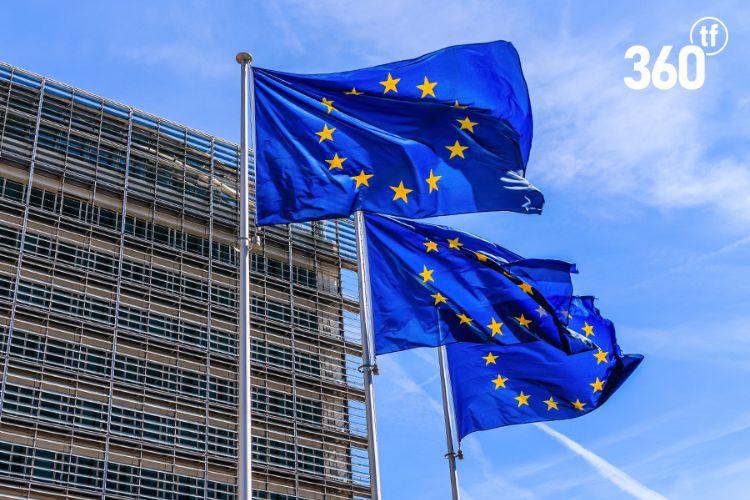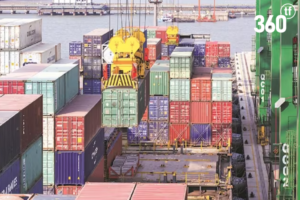The European Union has begun the rollout of a world-first carbon border tariff that will tax importers of emissions-intensive goods, but fears have been raised over the scheme’s impact on global supply chains.
On October 1, the EU initiated the transition phase of the new carbon border adjustment mechanism (CBAM) which is aimed at imports of iron and steel, cement, aluminium, fertilisers, electricity and hydrogen.
Companies importing these products have been told to collect import volume data and calculate emissions released during the production process – with the first quarterly report due by the end of January 2024.
Once the permanent system enters into force in 2026, the EU will begin taxing imports based on their CO2 emissions profile, partly to prevent so-called “carbon leakage”, where companies based in the bloc relocate carbon-intensive production to countries with lower environmental standards.
Experts say the move will have far-reaching supply chain consequences for major trading partners, such as the UK, China and Turkey.
In the metals market, for example, the tariff covers upstream ores as well as downstream goods including screws, bolts and nuts.
“CBAM could be devastating to the sector,” a British steel industry representative tells GTR, flagging the impending impact of administration barriers and financial penalties on exporters.
The EU is the largest export market for UK steel and accounts for about three-quarters of foreign sales, they note.
China and India have also raised concerns over CBAM and the damage it could inflict on their domestic metals producers who often rely on heavy emitting blast and basic oxygen furnaces.
According to research from ING, CBAM could drive up the cost of importing Chinese aluminium products into the European bloc by around 17%, unless Beijing manages to decarbonise the sector in the coming years.
ING says the outlook for Indian flows is a “bit more worrisome” and predicts the total cost of India-produced aluminium products will leap by over 40%.
Brussels has argued the carbon tariff is compliant with World Trade Organization (WTO) rules and is necessary to ensure its climate objectives – part of a push to be climate neutral by 2050 – are not undermined.
The bloc’s trade commissioner, Valdis Dombrovskis, said in a speech in late September that the EU would be “encouraging global industry to embrace greener and more sustainable technologies”, and added that CBAM will “contribute to the wider discussion about greater use of carbon pricing globally”.
Exporters in developing countries are likely to be harder hit.
Analysis by the African Climate Foundation and the London School of Economics and Political Science (LSE), finds that African states with a greater share of their exports destined for Europe will ultimately be the worst affected by the tariff.
In a report published in May, they say that – at current carbon prices – CBAM could reduce Africa’s exports to the EU by up to 5.7%, knocking off 0.91% from the continent’s gross domestic product, or around US$25bn, as compared to 2021 levels.
Courtesy: gtreview.com




